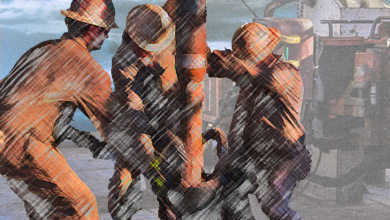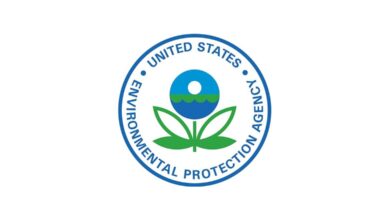Leading collaborative change for the industry
From Jason McFarland, IADC President
Over the past 80 years, IADC has grown to be the association it is today by serving members’ interests and helping them overcome everyday challenges and hurdles. When this year started, IADC expected to continue in that role. Little did I know what the year would require from the association, its members, the industry and the entire world.
Thankfully, proactive leadership from our members has continued to facilitate collaboration. Conversations – either with member company representatives or through chapters, regional directors, committees and students – determine how we address our members’ varied interests across companies, roles and regions.
In 2020, IADC served as a focal point for many of these conversations, working through our membership, fellow trade organizations, and national and local governments to support members in a time of uncertainty. As an example, when COVID-19 related protocols needed to be developed, IADC worked with governmental, ministerial and other industry groups to ensure that previously held best practices were incorporated into any new procedures.
Worldwide, IADC monitored, communicated and navigated through government aid packages and new regulatory hurdles. In the United States, IADC provided detailed breakdowns of the CARES Act and Paycheck Protection Program for our members. In Macaé, our engagement with local authorities facilitated the safe and continuous transport of critical personnel and supplies to work sites. IADC and its members also played key roles in the facilitation of such movements in Australia, India and the United Kingdom.
Throughout this year, the association engaged in working group meetings, standards conferences and joint trade calls with cross-sector partners around the globe. We met with groups concentrated on offshore operations, like IMO and NOIA, as well as groups focused on onshore operations, like the STEPS Network. We engaged with organizations about standards, like API and ISO. Our relationships with US state-level associations, like TXOGA and COGA, helped us advocate on behalf of our members. Collaboration with these groups led to webinars on oil and gas manufacturing, advocacy for sensible travel restrictions, classification of oilfield service workers as essential personnel, and proposed EPA rulemaking.
Also this year, IADC has continued to bring people together for cross-disciplinary collaboration and sharing of best practices by taking our conferences, committee meetings and trade calls online.
In June, the Drilling Engineers Committee held its first virtual technology forum. Since then, IADC has also hosted Virtual Panel Discussions covering topics like HSE, automation and data collection, and government policy; virtual conferences on advanced rig technology and well control; and numerous Zoom committee meetings.
More than just conference events and meetings were impacted as in-person gatherings became a public health concern. So, too, were well control training courses. Here, our work on the forthcoming continuous learning platform, KREW, proved useful and was leveraged to keep industry professionals trained through the new WellSharp Live distance-learning platform. Feedback on this platform has been overwhelmingly positive and demonstrates the association’s ongoing commitment to ensuring that our accredited training providers have the tools they need to safely train industry professionals.
While KREW’s distance-learning technology was repurposed during a time of need, IADC and its members also pressed ahead with previously planned KREW development. With a pilot phase completed, IADC is now partnering with content providers to expand KREW’s library with multiple learning tracks for users. The program is anticipated to go live in early 2021.
In 2020, the association also expanded its reach. The Latin America Chapter was formed in August, becoming the 17th IADC regional chapter. Several new student chapters were also founded at Bossier Parish Community College, University of North Dakota, Lone Star Community College, and Pandit Deendayal Petroleum University. Not only do we have more student chapters, but all of our student chapters, both existing and new, have also become more active this year. Student participation in IADC conferences has increased, enabled by their virtual formats. More students have also been able to take WellSharp Live courses through the distance-learning platform.
IADC is, and always has been, a member-driven, member-led association. I am thankful for all the hard work our members have contributed this year despite the chaos and market crash that happened amid this year’s pandemic. I am confident that IADC will remain well-positioned to serve its members for many years to come.
In the next few pages, please read in more detail about what IADC has done in 2020 in collaboration with our members. We feel, as I hope you do, that IADC’s commitment to collaborative change has brought a wealth of hope and new opportunities to our ever-changing industry. DC




